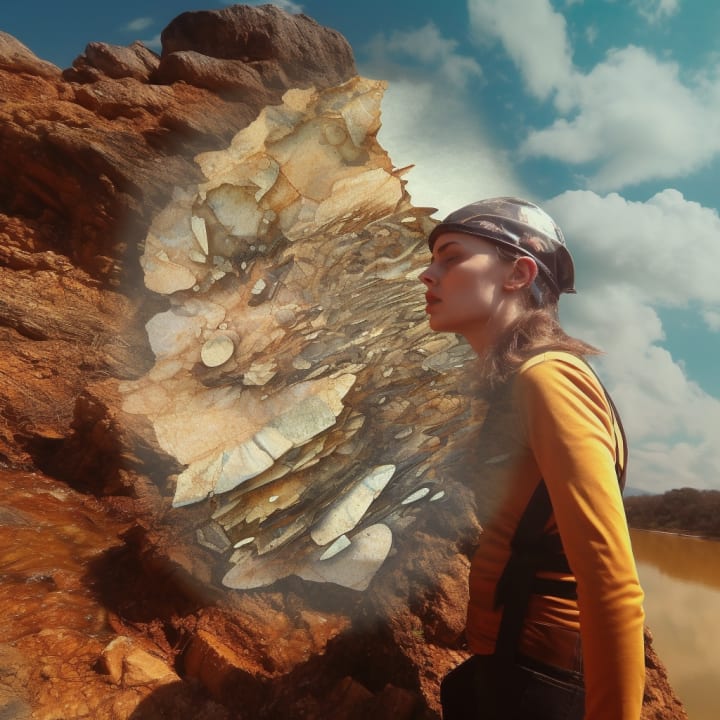
In a groundbreaking study published in the journal Nature, a team of scientists from the University of Western Australia has unearthed organic compounds in ancient rocks dating back 3.8 billion years. This amazing finding raises the possibility that life existed on Earth much earlier than previously thought.
The researchers focused their investigation on rocks from the Pilbara region in Western Australia, renowned for its ancient geological formations. These rocks, which are among the oldest on Earth, produced a wide range of organic substances, including amino acids, which are the basic building blocks of proteins. Additionally, the rocks exhibited carbon isotopes typically associated with living organisms.
Organic molecules found in such old rocks offer persuasive proof that there may have been life on Earth 3.8 billion years ago. This discovery greatly outdates the record for the earliest known indication of life on Earth, which is thought to be roughly 3.5 billion years old.
The discovery of organic compounds in ancient rocks carries profound implications for our comprehension of life's origins. It implies that life may have emerged swiftly in Earth's early history and could have been more widespread than previously assumed.
Furthermore, this revelation opens up the tantalizing possibility that life may have thrived on other celestial bodies during the universe's nascent stages. If life could develop so swiftly on Earth, it may have also arisen on other planets.
The quest for extraterrestrial life stands as a paramount objective in modern astronomy. The identification of organic compounds in ancient rocks represents a significant stride toward this endeavor, suggesting that life might be far more prevalent throughout the cosmos than previously imagined.

Implications of the Discovery
The discovery of organic compounds in ancient rocks holds several implications for our understanding of the origins of life. First of all, it shows that life may have started developing on Earth rather early in the planet's history. The rocks the researchers examined are 3.8 billion years old, which is older than the previous record for the oldest proof of life on Earth. This suggests that life may have begun a few hundred million years after the planet's birth.
Second, this discovery suggests that a wider variety of settings than previously thought may have supported life. The rocks examined originated from what is now a desert region in Western Australia, but 3.8 billion years ago, it was a shallow sea. This implies that life may have thrived in various environments on early Earth, including oceans, landmasses, and the atmosphere.
Second, this discovery suggests that a wider variety of settings than previously thought may have supported life.
The discovery also presents the intriguing possibility that life may have also existed on other planets during the early epochs of the universe. If life could manifest rapidly on Earth, the same may have been true elsewhere. Scientists are actively exploring this thrilling possibility.
The Future of the Search for Life
The identification of organic compounds in ancient rocks represents a significant advancement in the quest for extraterrestrial life. It suggests that life might be considerably more common throughout the universe than previously hypothesized.
he quest for life on other worlds is currently a top priority for scientists. They employ various methodologies, including the hunt for organic compounds, biosignatures, and evidence of metabolic activity.
While the pursuit of life beyond Earth poses challenges, it remains a crucial undertaking. Our concept of the cosmos and our role within it would be completely altered by the discovery of life on another planet.
About the Creator
Pushsa
My story is a testament to the power of ingenuity, and how we can harness that power to push the boundaries of what is possible. So if you're curious about the fascinating world.





Comments
There are no comments for this story
Be the first to respond and start the conversation.